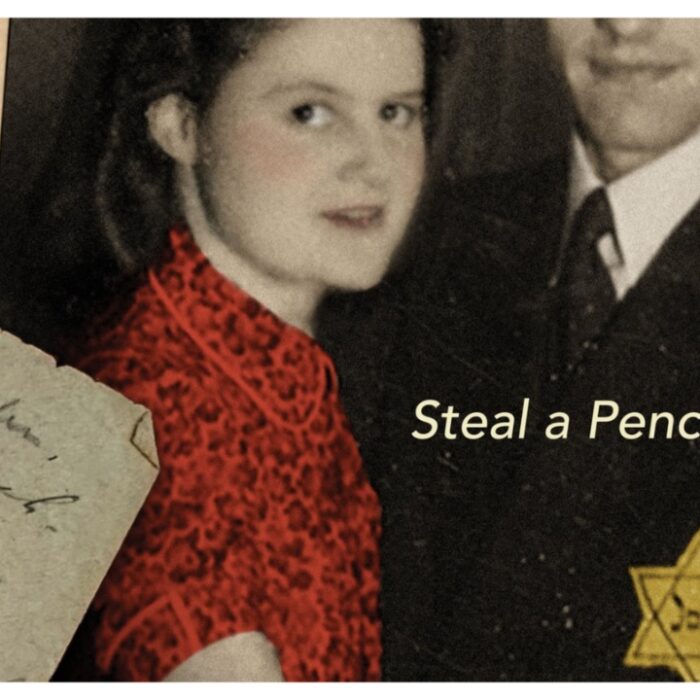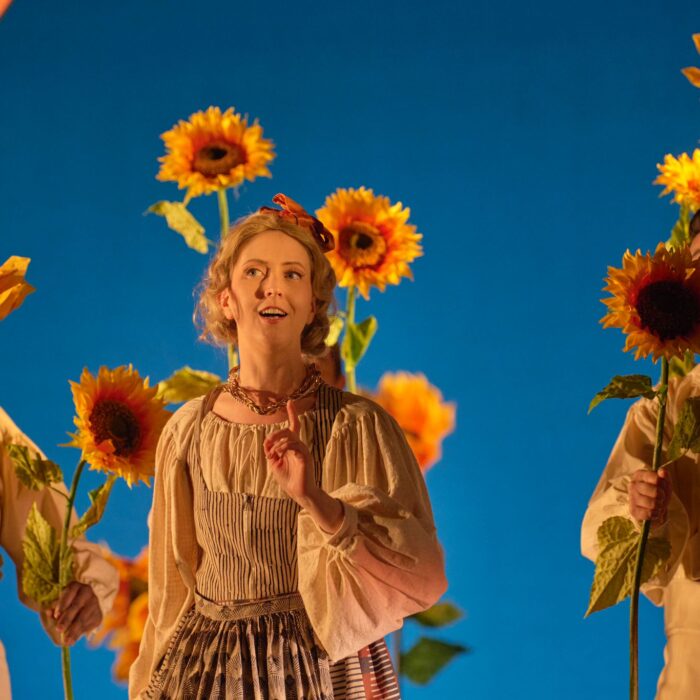
Q & A: Miami Music Festival’s Michael Rossi on Training Wagner Singers in Miami
By David SalazarWagner in Miami.
It has an interesting ring to it, mainly because you wouldn’t necessarily associate the intense heat of the ever-playful and carefree Floridian city with the philosophical and hyper-romantic German master of opera.
But it’s 2017 and the Miami Music Festival (MMF), which is featuring a number of repertory classics, is hosting its second-ever Wagner Institute, a program created with the intention of training young artists into Wagner singers. This concoction, which is rather rare around the opera world, was conceived by MMF’s Founder and Artistic Director Michael Rossi and superstar soprano Christine Goerke.
Rossi is a rising star in the world of operatic conducting, as he has also already had experience leading such ensembles as Philadelphia Orchestra, Baltimore Symphony, and the Orquesta Sinfónica de Xalapa as well as the First Annual PepsiCo National Young Artist Competition with the Charleston Symphony. A graduate of the Washinton National Opera’s Domingo-Cafritz Young Artist Program, he already worked with Maestro Plácido Domingo and has assisted such world-renowned conductors as Yannick Nézet-Séguin, Rafael Frühbeck de Burgos, Stéphane Denève, Manfred Honeck, Itzhak Perlman, and Vladimir Jurowski.
He recently spoke with OperaWire about creating the program at the Miami Music Festival, his love for Wagner and his vision for the Institute’s growth.
OperaWire: What inspired you to create a Wagner Institute in Miami?
Michael Rossi: Two years ago, I wanted to create this program where we could teach artists how to sing Wagner during their transition years. People in their 30s who have done the young artist programs singing Mozart and Verdi and are looking to make the jump to this repertoire. Usually, the transition is sudden. They’ve had a good career and suddenly they’re thrust on stage to sing their first Siegmund without any other experience. The reason for this is because there isn’t really a training ground for it.
OW: So how did the concept become a reality?
MR: I pitched the idea to Christine Goerke and she loved it. So last year we had the first institute with her, myself and Kathleen Kelly. It was a huge success. We did excerpts in a concert and Christine did the Immolation Scene. It was a full two-hour program. Since Christine couldn’t be here this year, she asked Christine Brewer to take her place.
OW: How was the response last year?
MR: Last year’s performance was a big success. The biggest trick was to try Wagner in Miami. It’s something that none of the other major companies here have done because it hasn’t been a very supported area of opera. So, this was a test and the critics and audience went wild with it. That’s why we decided to expand it this year. The applicant pool increased, especially with managers and others asking about being a part of it. And that’s why we have these amazing participants this year.
OW: So with an increasing talent pool to choose from, what do you look for when selecting the artists that will get to participate in the program?
MR: Mainly we are looking for people with a strong vocal foundation. We are not giving voice lessons. They have experience but this may be their first time looking at Wagner. Elizabeth Baldwin, for example, just did “Macbeth” at LoftOpera and this is her first time doing the entire Sieglinde. There are also singers that have done some Wagner in the past, but their careers are leading them deeper. Solomon Howard has sung Fafner in the Washington Opera Ring and now he’s doing Hunding with us.
And speaking of that, I am looking for people with an eagerness to learn. People who really want to continue their educational process, we want those people. Solomon Howard sees this as an opportunity to develop his interpretation of Hunding and try it out before going to the Met or Germany. This is a safe place where singers can experiment. And that was one of the big things for Christine Goerke. She wanted artists willing to take chances and experiment and are looking for advice from her and Alan Held and their many years of experience in this repertoire.
OW: Vocally speaking, what are you looking for?
MR: First I have to hear a voice that can carry over a 100-piece orchestra. When they come in I expect significant volume. It may sound great with a piano but I know what an orchestra will sound like. And the diction is so important to this music. Those are some of the big things vocally.
OW: Once they’ve been accepted, what does their experience at the Institute look like?
MR: We start with a lot of individual coachings in the first week. This year will be Peter Grunberg from Merola Opera Program andBrad Moore from the Houston Grand Opera. We start these right off the bat. But they usually wind up being group coachings all day long for six hours. All participants are there watching and learning together. That first week also has staging and music rehearsals.
The second week Alan Held comes. He is the principal teacher this year. They’ll basically do five to six hours of masterclasses on Wagner’s music. It’s a very vocally intensive but the singers get so much out of it. Last year Christine was doing that.
Week three includes tech rehearsals and orchestra rehearsals. That’s when Christine Brewer comes and she will continue doing the vocal work.
OW: For this year’s program you are looking at Act 1 of “Die Walküre” as well as some other sections from the opera. Why did you choose this work?
MR: We start by doing auditions internationally and then we see what we hear from the participants and applicants. Then we pick the program based off of that instead of picking an opera like “Tristan” or “Flying Dutchman” and trying to find the participants based on that. So, we choose the best voices we can find and the ones looking to get into this repertoire.
Act 1 was planned. It’s a perfect act for incoming Wagner voices. Most tenors and sopranos start with Siegmund and Sieglinde. I thought that would be a good work to choose. And we are also doing the “Götterdämmerung” prologue for three Norns. That is something a lot of Wagner singers go into for their first roles.
OW: Besides the final performance, are there other offerings for the public from the Wagner Institute?
MR: Well, we will also incorporate Wagner lectures this year from some Wagner scholars. The founder of the Wagner Society of Palm Beach, Mr. [John] Pohanka, is one our board members. He does great Wagner lectures and he’ll be doing a few.
But I’d also like to note that pretty much all the masterclasses and lectures are open to the public. So the general public is also able to learn as much as they want about what goes into singing Wagner.
OW: Let’s just talk about your own musical relationship with the composer. How did you fall in love with Wagner?
MR: I would say that 15 years ago I was in the Washington Opera Orchestra as a trumpet player and the first opera I played was “Valkyrie.” I’ve never experienced anything like that again. That’s when I fell in love with it. But at that point, I think it was only from an instrumentalist point-of-view. Then I looked back at the score and really dug deeper.
Pohanka talks about that Wagner moment of complete euphoria where time just stops and you are in awe about everything – the music, picture, and how a 6-hour opera can only feel like it’s two. And for me, that moment in Act 2 of Tristan, with Phillipe Augin conducting, is one of the great musical moments of my life.
OW: And what is your favorite Wagner Opera?
MR: At this moment, it’s “Valkyrie.” It changes depending on what I’m working on, but this one is always up there for me. Act 1 is the perfect act in opera in my opinion.
OW: Looking into the future, how would you like to see the institute grow?
MR: I want Miami to be a name that people associate with Wagner. The more it grows, I am hoping to have one week Wagner festival in the winter where we do a full staged production. It’s tourist time and people love Miami in the winter. And if people will go to Bayreuth in the summer, then why not Miami in the summer or the winter. As for the immediate future, I can tell you that we’re planning to do a full Wagner production next season. We don’t know what it is yet. It could be “Valkyrie.”
OW: Branching off into the other offerings for this summer’s festival, I was quite struck by your Zarzuela Nights Concert. Talk to me about that program.
MR: This is our fourth year. Basically, that concert is another training program. We have singers from around the world, over 104 singers over two months, usually 50 per month. One of the things that Miami is known for is the Spanish community. So, we want to train singers in Zarzuela so they can connect with the community. We also have a lot of Miami singers who do zarzuela professionally coming to the program and working with the new participants and it’s interesting to see the experienced and inexperienced working together. And the audience has been great and supportive because they know that there is a wide range of experience in the art form on our stage.
It’s been one of the fun programs we’ve done these past few years.


